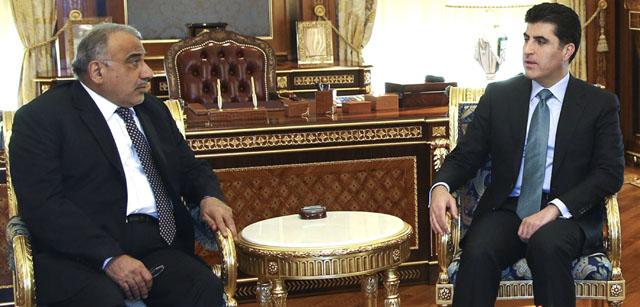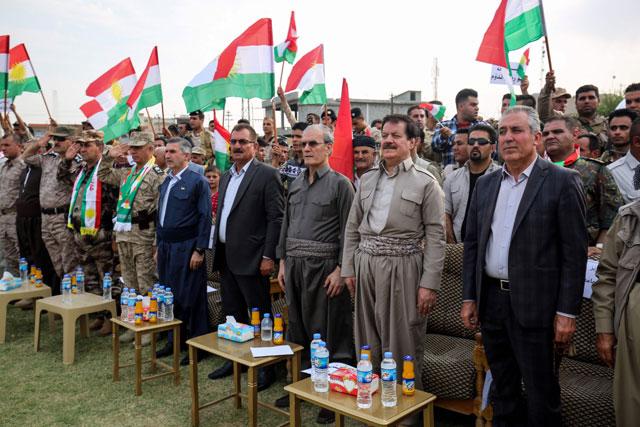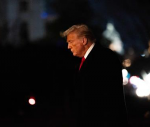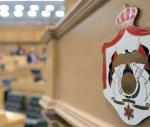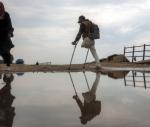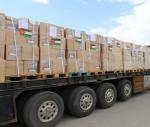You are here
Baghdad money squeeze tests limits of Iraqi Kurdistan’s autonomy
By Reuters - Mar 17,2014 - Last updated at Mar 17,2014
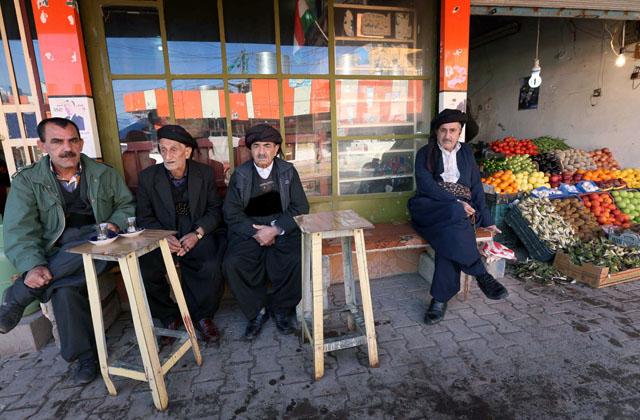
ERBIL, Iraq — Rizgar pulled one of his wife’s bracelets from his pocket and laid it on a gold merchant’s counter in Iraq’s Kurdistan region at the weekend, reluctantly selling it to cover his bills.
The electricity ministry in Kurdistan had not paid Rizgar for two months because the Baghdad government has withheld funds to punish the Kurds for trying to export oil via a new pipeline.
“I have to sell it, or else I’ll go into debt,” said Rizgar, 39. “If my salary doesn’t come soon, I don’t know what I’ll do.”
A day after he sold the gold bangle, his ministry was among several that finally met the February payroll after the federal government belatedly sent some money at the weekend, but officials in Baghdad insist they will pay no more.
The region says it will pay its own way in March, but the financial squeeze shows how reliant Kurdistan remains on Baghdad for a slice of the OPEC (Organisation of Petroleum Exporting Countries) producer’s multibillion-dollar budget, so long as it cannot export oil in large volumes itself.
Kurdish officials often hint they could file for divorce from Iraq — and their differences with the central government in Baghdad seem more irreconcilable than ever.
However this confrontation ends, the region is likely to push even harder for economic independence, raising the stakes in a dangerous game of political brinkmanship.
The funding crunch hitting the Kurdish economy, which has boomed since the 2003 US-led Iraq war, has been felt acutely in the gold bazaar, which serves as an informal banking system.
“If I can’t sell, I can’t buy,” said a gold trader in the regional capital Erbil, opening an empty cash register after turning away yet another customer who wanted to sell. “How can you talk about an independent state when you can’t pay your own employees?”
Bloated payroll
More than a fifth of Kurdistan’s five million people are on a government payroll that has swollen to 840 billion dinars ($722 million) a month — 70 per cent of public spending in 2013.
Formally, Baghdad is supposed to give Kurdistan 17 per cent of the national budget after sovereign expenses, flown in cash from the central bank to Erbil, though how much is actually paid is disputed.
Now the Iraqi government says payment should be contingent on the region exporting oil solely under state auspices, which Kurdistan objects to.
In January, it paid 566 billion dinars, less than half last year’s monthly payments. It transferred another 548 billion for February at the weekend.
“The equation is simple: You take 17 per cent of the wealth, you hand over the oil you have,” Prime Minister Nouri Al Maliki told France-24 television last week, summarising the dispute.
Political brinkmanship has in the past brought Iraqi troops face to face with Kurdish “peshmerga” forces in the oil-rich band of territory along their contested internal frontier.
The Kurds have strengthened their hand by signing contracts with oil majors and building a pipeline to Turkey in defiance of Baghdad. One million barrels of oil have already flowed along it into storage tanks at a Turkish port, but Ankara wants Baghdad’s blessing before exports go ahead. No compromise is yet in sight.
“We’ve been working on this for some time and it’s come a long way,” said a US diplomat of the quest for a deal between Baghdad and Erbil. “Election season makes it harder, however.”
Parliamentary elections are set for April 30 and neither side wants be seen as weak for making concessions. But with his own Shiite constituency divided and minority Sunnis hostile, Maliki might need Kurdish backing to form a new government.
Trump card
“Maliki may be creating bargaining chips to play with the Kurds if he aims to gain their support for his third term,” said Ramzy Mardini, a non-resident fellow at the Atlantic Council. “All this is pre-election jockeying. Once the dust settles and the government formation dynamics are under way, it will be clearer who has the advantage.”
Ayham Kamel, director of Middle East and North Africa at political risk consultancy Eurasia Group, said the Kurdistan government was not without leverage, but was still dependent on funds from the centre.
“Baghdad’s ability to cut or curtail such financing is a trump card in the relationship,” he remarked.
Wrong-footed by the budget cut, the Kurds are weighing their options. A cartoon in the Iraqi press shows a fiendish-looking Kurdish President Masoud Barzani standing astride a dam, illustrating fears the Kurds could cut off water to the rest of Iraq.
“We are still hoping Baghdad will act responsibly,” the Kurdish Regional Government’s (KRG) Planning Minister Ali Sindi told Reuters. “Definitely there are cards that the KRG can also play, but we don’t want to talk about them now.”
For now, the battle is unfolding in parliament, which mustered a narrow quorum for the first reading of Iraq’s draft 2014 budget on Sunday, despite a boycott by Kurdish lawmakers.
If it passes, the budget will make Kurdistan’s allocation conditional on its exporting 400,000 barrels per day of crude via Iraq’s State Oil Marketing Organisation. Any shortfall would be deducted from the region’s 17 per cent entitlement.
“This is punishment,” said Abdulkhaliq Rafiq, a KRG finance ministry adviser, brandishing a copy of the draft budget with the offending articles highlighted in pink.
It is not clear how much income Kurdistan generates itself, but Sindi said it does not cover government salaries, let alone other operational costs and some 2,900 investment projects in progress.
The region is seeking ways to raise more revenue and cut spending, as well as alternative sources of financing abroad.
“We have started looking at different finance models such as loans and public private partnerships,” said Sindi, adding that the KRG had been in talks with foreign banks even before Baghdad slashed the budget.
Saving or stealing?
In the meanwhile, Kurdish tycoons have chipped in to help improve liquidity. Among others, the founder of mobile operator Asiacell lent 15 billion dinars to banks in Suleimaniyah city.
Some hope the crisis will spur the KRG to change its spending habits and reform employment practices.
Barzani’s Kurdish Democratic Party and its rival, the Patriotic Union of Kurdistan, have dominated power since the region won autonomy in 1991, hiring thousands of people into an increasingly bloated public sector to tighten their grip.
Bilal Wahab, research fellow at the American University of Iraq, Sulaimani, described the status quo as unsustainable.
“Unless the KRG diversifies its economy and employment, it could face economic instability and public unrest,” he said.
Kurdish nationalism fuelled by past mass killings under Saddam Hussein remains a potent rallying cry, as was evident at the reburial this month of 93 Kurds unearthed in a mass grave in the desert in southern Iraq last year. Most had been killed by firing squad as part of Saddam’s campaign to quell the Kurds.
“The Kurdish people did not make all these sacrifices in order to be subjected to oppression and despotic rule once again,” Barzani said at the ceremony, declaring that the time had come to reconsider relations with Iraq.
“If the authorities in Baghdad continue to treat us in this way... we will take a stance no one can anticipate,” he added.
A small crowd gathered outside the Kurdish region’s parliament last week shouting “Maliki is a dictator”.
But many Kurds say their own leaders are partly to blame for the budget crisis, which has re-focused attention on opaque dealings and corruption in Kurdistan, described as “widespread and pervasive” in a recent US State Department report.
“Where is the money? Nobody knows,” said a gold trader in Erbil, who asked not to be named. “Either they are saving it for independence day, or they are stealing it.”
Related Articles
The government of Iraq and the semi-autonomous region of Kurdistan have reached a deal to ease tensions over Kurdish oil exports and civil service payments from Baghdad, Iraq's finance minister told Reuters on Thursday.
Iraq will seek legal redress and take other measures to punish Turkey and Iraqi Kurdistan, as well as foreign companies, for any involvement in Kurdish exports of “smuggled” oil without Baghdad’s consent, Iraq’s oil minister said on Friday.
ERBIL, Iraq — An Iraqi Kurdish plan to hold a September 25 independence referendum, which has hit a legal roadblock with just a week to go,


